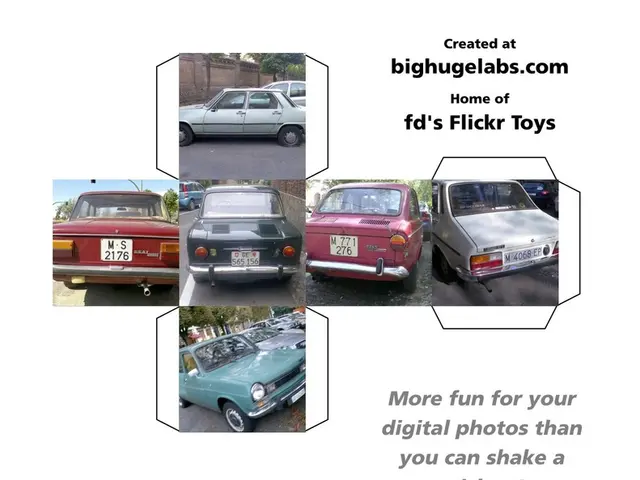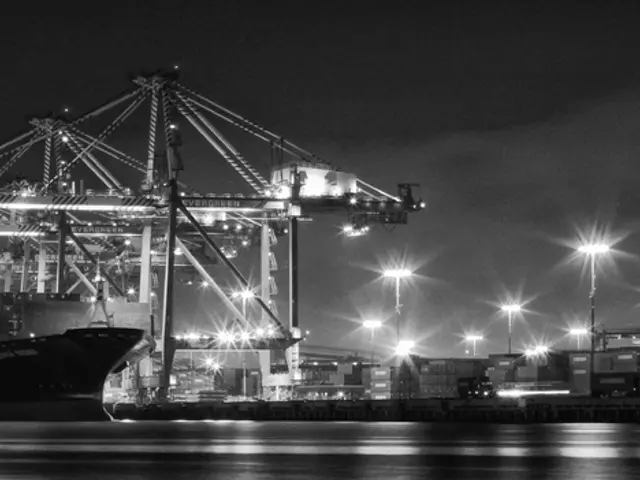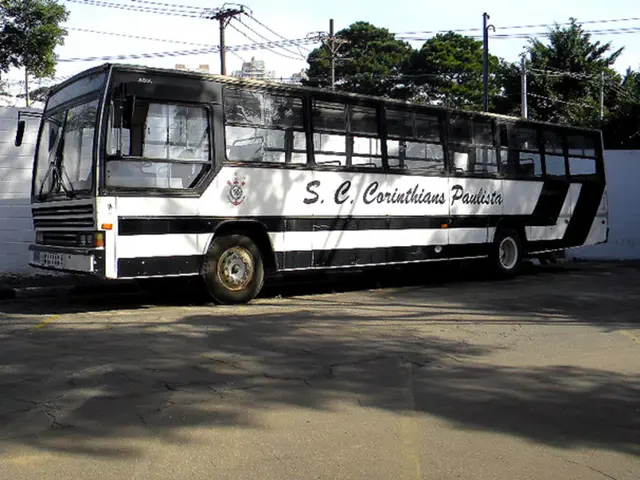Revised Article:
Caught in Crossfire: Jaguar Land Rover and the Auto Industry Facing Tariff Turmoil
Despite challenges posed by tariffs, Jaguar Land Rover persists in reinforcing vehicle exports from the United States.
Jaguar Land Rover (JLR) has resumed shipping cars to the US after halting operations in the midst of President Trump's trade war. The first mile-long convoy of vehicles embarked from the UK on Wednesday, according to The Times. The lull in send-offs came about when Trump slapped a 25% levy on foreign-manufactured vehicles.
The UK automaker hasn't publicly addressed the decision to reinitiate shipments to the US. A spokesperson for JLR told The Times, "The US is a vital market for our luxury brands, and 25% import tariffs remain in effect. We're taking steps to address the new US trading terms with our partners, devising both short-term and long-term strategies." The company will provide updates in their upcoming full-year results set to be released in May.
Trump's sudden 90-day delay on tariff levies sent markets rejoicing last month. However, the pause didn't extend to the 25% duty on car imports, leaving the global automaker industry in a bind.
The uncertainty spurred by the tariffs has caught several firms off-guard. Mercedes-Benz, Stellantis, and recently, Chevrolet owner General Motors, have withheld guidance for the remainder of the year. Russ Mould, investment director at AJ Bell, remarks, "The auto sector is grappling with a slew of difficulties; tariffs have only compounded the challenges, making them tougher to navigate."
In addition to the tariff wars, manufacturers face mounting pressure to transition to electric vehicles (EV), making long-term planning a daunting task amidst a continuously evolving policy landscape.
The tariff saga comes at a time when the auto industry is struggling to devise strategic plans in the face of ever-changing policy dynamics. Moreover, the global transition to EVs further complicates this already challenging terrain. Here's how companies are adapting:
Adaptation Strategies
- Localization of Production: Manufacturers are shifting towards localized production to avoid tariffs and secure stable supply chains.
- Diversification: Companies are diversifying their manufacturing bases and supply chains across multiple regions to minimize exposure to any single market's policies.
- Partnerships and Collaborations: Forging partnerships with other companies or governments can help share risks and costs associated with navigating complex trade landscapes.
In essence, current tariffs and trade policies pose a multifaceted challenge for automakers like Jaguar Land Rover and the broader EV manufacturing sector. By prioritizing flexibility, localization, and resilience, companies aim to navigate these complexities and secure a competitive edge.
- Jaguar Land Rover (JLR) is resuming shipments to the US, neighbors the UK automaker's decision to reinitiate transportation of vehicles following President Trump's 25% levy on foreign-manufactured vehicles.
- A spokesperson for JLR stated that the US is a crucial market for luxury brands, and steps are being taken to address the new US trading terms with their partners, devising both short-term and long-term strategies.
- Trump's 90-day delay on tariff levies brought relief to markets last month, yet the pause didn't extend to the 25% duty on car imports, leaving the global automotive industry in a precarious position.
- Companies such as Mercedes-Benz, Stellantis, and General Motors have refrained from providing guidance for the remainder of the year in light of uncertainty brought on by tariffs.
- As the auto industry grapples with challenges dealing with tariffs, it also faces mounting pressure to transition to electric vehicles, making long-term planning an arduous task in the face of evolving policy landscapes.
- Adaptation strategies employed by manufacturers include localization of production, diversification of manufacturing bases and supply chains, and forging partnerships with other companies or governments to share risks and costs associated with navigating complex trade landscapes.








